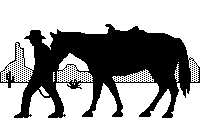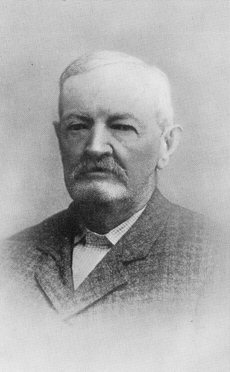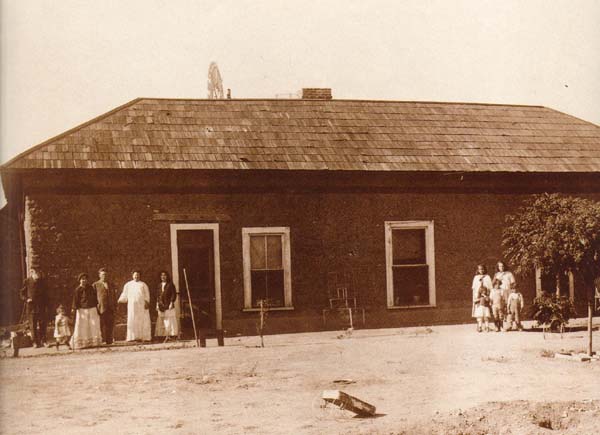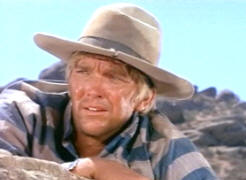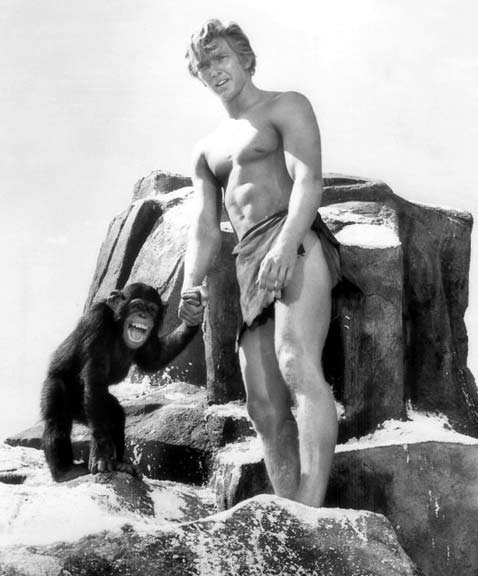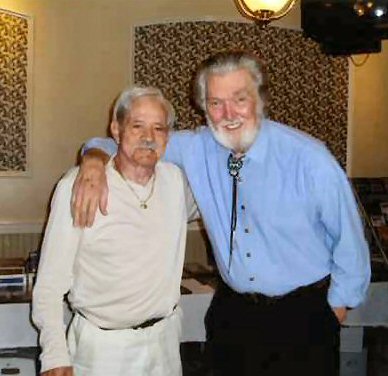|
The High Chaparral Reunion 2007 | |||
|
Dear High Chaparral Fans: This issue begins a new feature - "My Favorite Episode." We welcome contributions from everyone, at highchaparralreunionnewsletter@gmail.com. The talented Denny Miller is our featured interview. What a joy it was to spend time with him at the Roy Rogers Festival in Ohio, and a privilege to be allowed this special interview. He and his wife Nancy have become good friends to many High Chaparral fans - we hope they will be joining us at the reunion. We also get a history lesson. Jan Lucas paints a vivid, in-depth picture of Pete Kitchen, whose life was the basis for The High Chaparral. Don't forget - reunion fees go up $10 as of July 1. Make your reservation today! | |||
|
The High Chaparral
Now Hear This |
High Chaparral News
Kent McCray, producer of The High Chaparral, received an honorary Doctorate of Fine Arts from the University of Hartford. The following is the citation read by Susan McCray and University President Walter Harrison at the graduation ceremony: Kent McCray, you were the first theater major at the University of Hartford, graduating from The Hartt School in 1951. From here you became a television industry pioneer whose groundbreaking career has spanned more than five decades. You worked on legendary programs with legendary performers: "The Milton Berle Show "The Red Skelton Show," "You Bet Your Life" with Groucho Marx and "This is Your Life" with Ralph Edwards. As an associate producer for the legendary Bob Hope, you traveled with him on USO trips with the rank of first star general to entertain the troops, for which you were presented the Dept of Defense Certificate of Esteem for patriotic service On the home front you produced the NBC westerns The High Chaparral and Bonanza. Your thirty-year partnership with best friend Michael Landon produced some of the most popular shows in television history, "Little House on the Prairie," "Father Murphy" and "Highway to Heaven." Your success in Hollywood has not diminished your devotion to your friends at the University of Hartford. You served as an alumni regent for a decade and you remain an honorary regent today. Your generosity on behalf of our students includes a generous leadership gift in 2005 for what is now called the Kent McCray Television Studio, a major gift to the University of Hartford Performing Arts Center and you established three endowed partnerships at The Hartt School to support students studying opera, theater and musical theater. Your integrity to quality family entertainment, throughout your illustrious career makes us proud. Kent McCray, the University of Hartford is proud to call you an Alumnus. In recognition of your professional achievements and Personal generosity that bring wide-ranging benefit to our entire Community, I am honored to present you with the degree of Doctor of Fine Arts, honoris causa. | ||
|
High Chaparral on the Web The Official High Chaparral website The High Chaparral Reunion website
2007 Reunion Fees
R eservations are $45, and your remaining balance will be $135. After July 1, fees will be $145.00 Registration closes August 1. Payments must be made in U.S. dollars and can be made by: personal check, money order, or Paypal to info@highchaparralnewsletter.com (Note that full payment is due by July 31, 2007. Your registration is non-refundable. Cancellations made before July 1 will be refunded in full, and a 50% refund will be given to cancellations made after July 1. Unfortunately, no refunds after August 1.)
|
My Favorite High Chaparral Episode "Champion of the Western World" A fast-paced episode, that leaves you with a big smile for the rest of the day. Watching this episode you get the feeling the actors were having a lot of fun doing this, they are bursting with energy and it never seems forced or artificial. It all starts when Blue sees a beautiful Mexican saddle and his only chance of getting it is winning the 4th of July contests. It would be hard to choose "The Funniest Scene" from this episode, because there are so many extremely good ones, yet there I've picked four scenes which I think are worth mentioning. The first is when John who tells the men not to get into a fight in Tucson (or if they have to, to do it where Victoria can't seen them) and then starting a fight himself.
The second when John considers entering the wild horse riding contest and Sam, Victoria and Blue are having difficulty keeping a straight face, because they think he is too old. Blue can't help but laugh and says: "I just don't want you to get hurt, Pa". Hilarious is the scene where Mano loses the race Topping it all is Blue's fight with Paddy. Just looking at him in his special outfit brightens my day, Although things look rather bad in the end, the writer found a way to give us a great happy end, where Paddy gets the price money so that he can marry his sweetheart, the boys don't have to leave town poorer than they came in, and Blue accepts the saddle as a present from Victoria. "Champion of the Western World is much more than 'just' a funny episode. It's about the relationships between the Cannons and
| ||
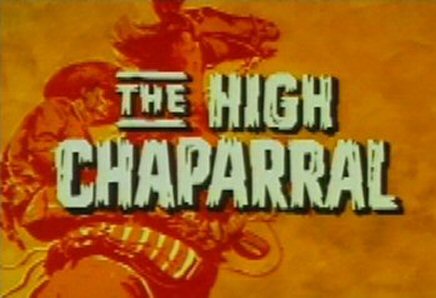
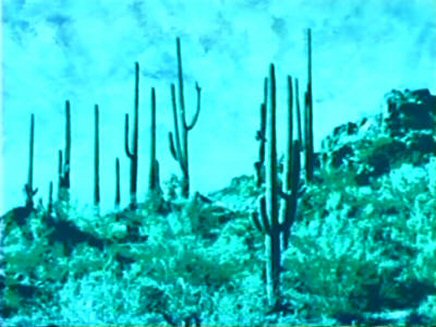
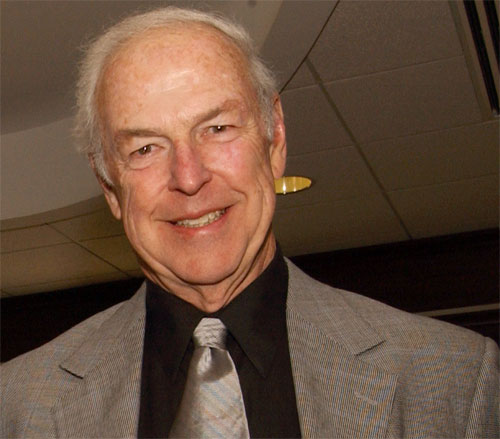
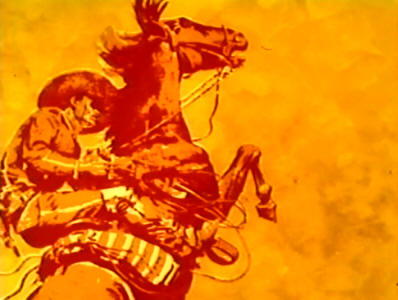
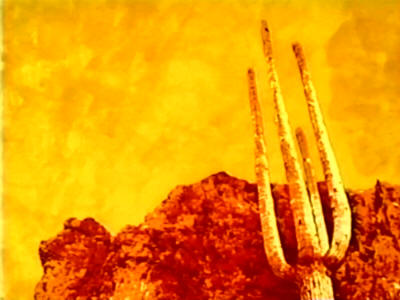
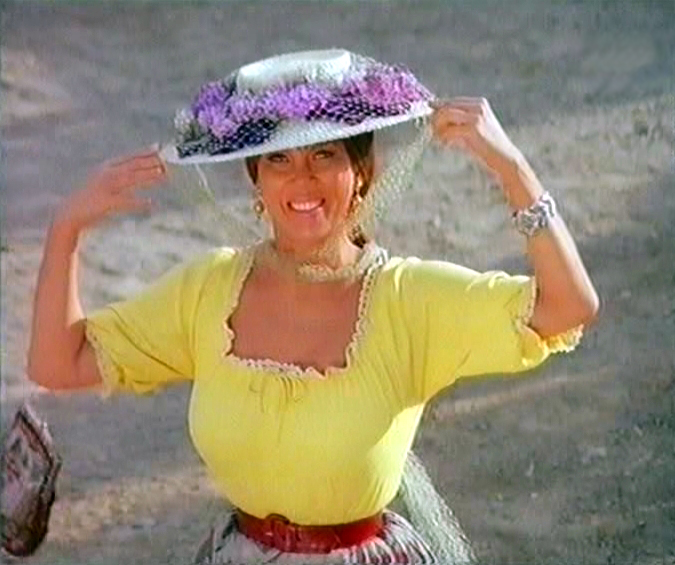 because Perlita is showing of her new hat, which he has previously
stolen from Victoria, and Mano, Blue and Sam stomp on her 'beautiful'
hat in anger and frustration.
because Perlita is showing of her new hat, which he has previously
stolen from Victoria, and Mano, Blue and Sam stomp on her 'beautiful'
hat in anger and frustration.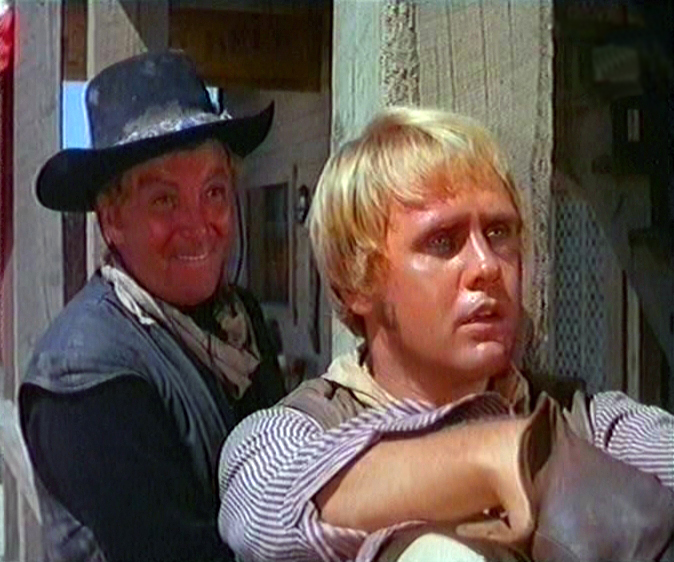 the Montoyas, between Victoria and Blue and Victoria's struggle to find
her place in the Cannon family, between Buck and Blue, with Buck
showing his love is rather strange ways every now and then. It's also
about the friendship and the loyalty of the bunkhouse boys, and about
Blue always trying to do what is right.
the Montoyas, between Victoria and Blue and Victoria's struggle to find
her place in the Cannon family, between Buck and Blue, with Buck
showing his love is rather strange ways every now and then. It's also
about the friendship and the loyalty of the bunkhouse boys, and about
Blue always trying to do what is right. 